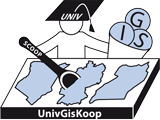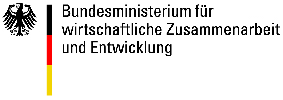Objectives
The overall objective is to provide a thorough contribution to institution buildingby harnessing geomatics facilities as empowering tools for sustainable development and thus indirectly by maximizing the use of existing geodata resourcesin the respective regions to address some of the major development challenges of the countries. More specifically the objectives are to:
- streamline geodata use and GIS in existing curricula for undergraduate and graduate courses at MMUST and MAK by harmonizing the teaching and by jointly developing lecture materials, the latter nevertheless suiting regional demands,
- university GIS centres running and acceleratingin two developing countries, with staff with enhanced capacities (regarding knowledge and skills) to fulfill their role as multipliers,
- conduct a series of workshops and conferences in Karlsruhe, Kampala, and Kakamega Town to ensure curriculum integration and to evaluate and test the lecture materials by an participatory effort, to demonstrate and learn from practical geomatics applications, to discuss project matters, to disseminate project results, and to promote academic exchange and intercultural dialogue,
- build institutional capabilities for an increased geodata use and access to geomatics technology for students of relevant courses of MMUST and MAK, for conducting in the medium and long-term also research for which use of geodata and GIS is a prerequisite or challenge, and eventually also to serve policy practitioners of the government, non-government and private business sectors,
- ensure sustainability beyond the project duration by supporting the use of technologies that are demand driven, by capacity building through the academic institutions as well as commitment building at the decision making level,
- strengthen linkages on institutional and personal basis between Germany, Kenya, and Uganda providing the basis for long-term support in facilitating the universities’ engagement for a continuous state-of-the-art GIS training,
- foster a better understanding between developed and less developed countries.
Preliminary ideas
Preliminary discussions on the needs at the East African partner universities revealed that the elaboration of three mandatory modules would suit both an intensification of geodata use and GIS training for the students and a rather straight forward integration into existing curricula across a number of study courses offered:
for undergraduate courses
Module 1 on Geodata Use: Here, extensive use will be made of the BIOTA East Africa Atlas to create map reading literacy, this not only related to orientation but to recognizing patterns and correlations from maps. This is neither part of school education nor current university teaching, but is considered to be crucial although it is a missing and necessary prerequisite for any sophisticated handling, processing and analysing of geodata in the geoinformatics environment later on.
Module 2 on Introductory GIS: For this module the theory taught is the same independent of the university offering this module. However, the accompanying exercises are regionally tailored by making use of geodata from a forest area close by.
for graduate courses
Module 3 on Advanced GIS: Most of the theory covered is the same again. But subject-specific components are included dependent on the module’s integration into a specific study course. The exercises are both regionally and subject-wise tailored. For those students not having followed a GIS basics module of similar depth as module 2 it should be mandatory to sit and pass module 2 before subscribing to module 3.
See also the time plan.
Expected results
Outputs and outreach:
- a Website for sharing information and to be used as discussion platform,
- teaching materials and exercises (manuals) for possible 3 modules: geodata use, GIS basics, and advanced GIS; for use in undergraduate and graduate programs of different departments,
- concepts and specific plans of integrating the modules into curricula at the 2 target universities,
- by conducting a workshop / conference, appraisal in the East African region for harmonized integrated university GIS training and geomatics technology application,
- visible and open but targeted networking to strengthen own impact and to promote cooperation for everybody’s benefit.
- upgraded knowledge and skills in regard to teaching geodata use as well as GIS theory and techniques, thus stimulating specialized geomatics study programs,
- a closer link to the regions the universities are placed in and their specific environmental challenges by applying geodata of regional relevance,
- enhanced, modern Bachelor and Master study programs fostering integrated interdisciplinary approaches based on state-of-the-art techniques,
- a start in harmonizing GIS teaching across East African universities easing student mobility,
- computer labs dedicated to and suitably equipped for professional geodata processing with a full institutional backing,
- motivation triggered by what others have achieved, but also knowledge on what possibly to avoid.
- learning about differences and common roots regarding the cultures from three different countries of two continents,
- improved intercultural understanding and thus a more smoothly working within the cooperation and beyond,
- friendship and long-lasting cooperation through personal links facilitating motivation and continuous state-of-the-art GIS training and possibly also joint research.






